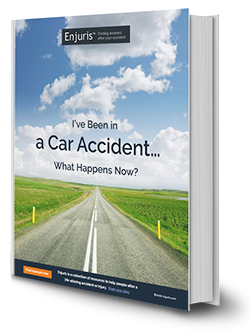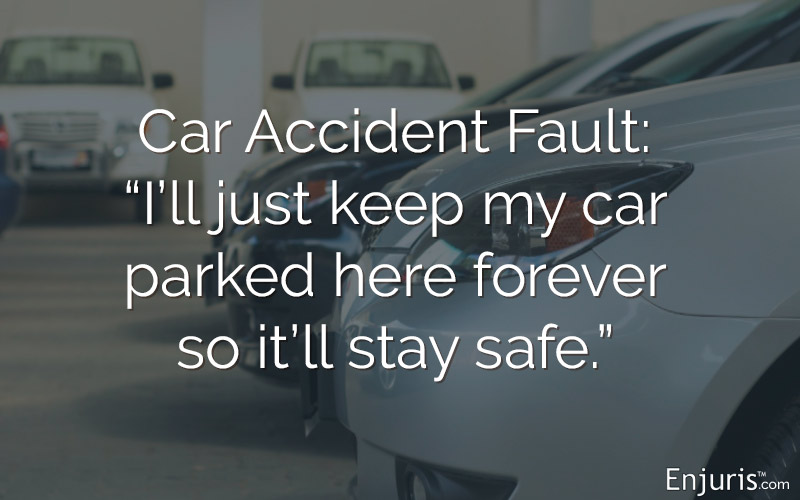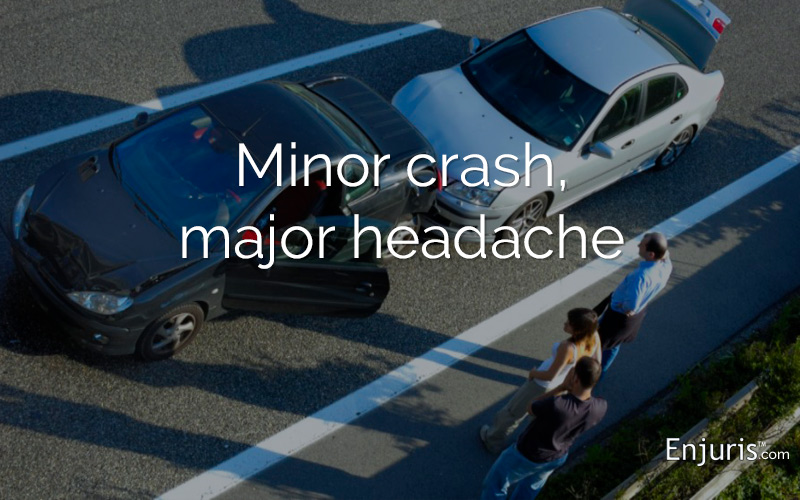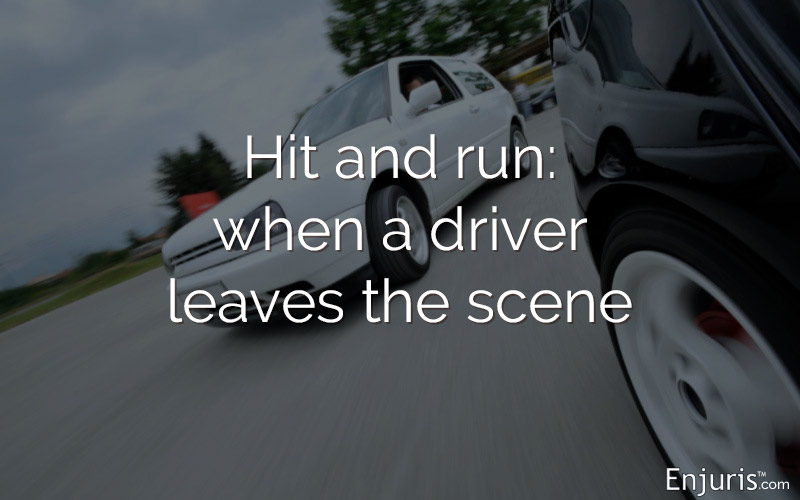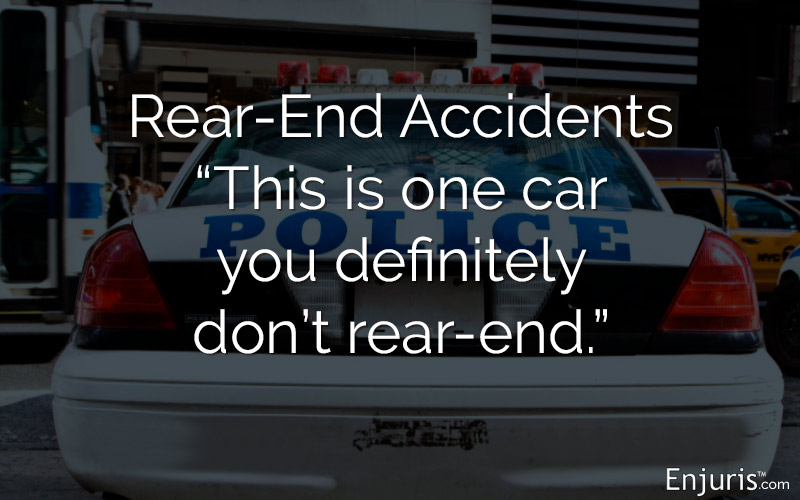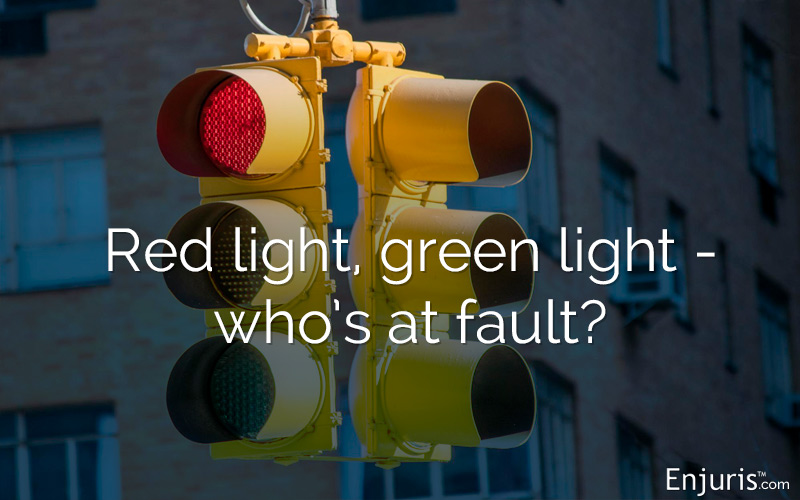Find out how state laws impact car crashes and personal injury lawsuits in the Old Dominion State
Home of the Blue Ridge Parkway, which winds through the Appalachian Mountains, and Skyline Drive, which runs along the crest of the Blue Ridge Mountains and through the Shenandoah National Park, it's safe to say that many of the roads in Virginia are beautiful — and well-traveled.
In fact, there are more than 5.9 million licensed drivers and 7.5 million registered vehicles in the Old Dominion State, according to the Virginia Department of Motor Vehicles.
Unfortunately, more cars mean more accidents.
If you've been injured in a car accident in Virginia, now is a good time to learn about the laws that might impact your ability to recover compensation.
Virginia car crash statistics
Tweet this
Though not all car crashes cause injuries, roughly 2 people are killed and 182 people are injured every day as a result of traffic crashes in Virginia.
| Virginia car crash statistics (2014-2018) | |||
|---|---|---|---|
| Year | Crashes | Fatalities | Injuries |
| 2014 | 120,282 | 700 | 63,384 |
| 2015 | 125,800 | 753 | 65,029 |
| 2016 | 128,525 | 761 | 67,292 |
| 2017 | 127,375 | 843 | 65,303 |
| 2018 | 131,848 | 819 | 66,523 |
Source: Virginia Highway Safety Office
There are many factors that contribute to car accidents in Virginia, including:
- Improper lane changes
- Following too closely
- Improper passing
- Poor road conditions
- Poor weather condition
- Mechanical failures
These and other factors have led to a rise in crash fatalities in Virginia in recent years.
| Virginia car crash fatalities by primary factor (2014-2018) | |||
|---|---|---|---|
| Year | Alcohol-related | Speed-related | Unrestrained |
| 2014 | 252 | 300 | 256 |
| 2015 | 242 | 326 | 310 |
| 2016 | 262 | 316 | 304 |
| 2017 | 248 | 318 | 308 |
| 2018 | 278 | 339 | 298 |
Source: Virginia Highway Safety Office
How to determine fault for a car accident
All drivers in Virginia (and all other states) have a legal duty to drive with "a reasonable degree of care." If a driver violates this duty and causes an accident, the driver can be sued for negligence.
To prove negligence in Virginia, you must prove that:
- The other driver owed you a duty. All drivers owe all others on the road a duty to drive with a reasonable degree of care.
- The other driver breached their duty. To prove this, you'll have to show that the other driver failed to drive with a reasonable degree of care — for example, the driver was texting while driving, or they ran a red light.
- You suffered damages as a result of the driver's breach. You must show that the driver's failure to drive with a reasonable degree of care (by, for example, running a red light) caused the accident. In other words, but for the driver's actions, the accident wouldn't have occurred and you wouldn't have suffered damages.
Though drivers are generally at fault for car accidents, there are special situations where some other person or entity may be at fault. For example:
- Manufacturers. A manufacturer may be liable for a car accident if a defective vehicle component caused the accident. In this situation, a product liability lawsuit would be brought against the manufacturer.
- Government entities. In rare situations, a road condition (such as a pothole or uncovered manhole) may have caused the car accident. Generally, the city, state, or federal government is responsible for maintaining road safety.
Contributory negligence in Virginia car accident cases
Virginia is one of the few states that follows the pure contributory negligence rule. Under this rule, if the plaintiff is the least bit responsible for the accident (even 1%), the plaintiff is prohibited from recovering any damages.
Let's look at an example:
John is approaching an intersection from the south in Richmond, Virginia. It's raining lightly and John's headlights aren't on. At the same time, Rick is approaching the intersection from the east. John has a green light at the intersection and Rick has a red light. However, Rick is texting and doesn't see the red light. As a result, Rick runs the red light and collides with John.
John suffers serious spinal cord injuries and sues Rick for $500,000.
The court finds that Rick was 99% at fault for the accident for failing to stop at a red light and texting while driving. But the court also finds that John was 1% at fault for failing to turn on his headlights.
In this example, John would be prohibited from recovering ANY damages under Virginia's pure contributory negligence rule, despite the fact that Rick ran the red light.
Types of auto accident damages in Virginia
Depending on the circumstances of the accident, including how fast the cars were traveling and whether the occupants were wearing seatbelts, injuries can range from minor scrapes and bruises to death.
Common car accident injuries include:
- Whiplash
- Burns
- Traumatic brain injuries and other head injuries
- Spinal trauma
- Broken bones
- Death
- Scarring
Virginia allows car accident victims to recover both economic and noneconomic damages. Economic damages refer to the loss of monetary resources. Noneconomic damages are those damages that aren't easily quantifiable.
Here's a breakdown:
| Damages available in a Virginia car accident lawsuit | |
|---|---|
| Economic damages | Noneconomic damages |
| Property damage | Pain and suffering |
| Medical expenses | Emotional distress |
| Lost wages | Loss of consortium |
Statute of limitations in VA car crash lawsuits
A statute of limitations is a law that limits the amount of time a plaintiff has to file a lawsuit.
This means that you have just 2 years from the date of the car accident (or in some situations the date that you realize you've been injured) to file a personal injury lawsuit.
When to report a car accident in Virginia
Virginia law requires that you report a car accident to the state police or local law enforcement if the accident resulted in any of the following:
- Injury
- Death
- Property damage
So pretty much, you should always report a crash in Virginia. If you fail to report the accident, you could face a fine and significant jail time depending on the damages caused by the accident.
Virginia insurance requirements and laws
In Virginia, it's illegal to drive a motor vehicle without the following minimum amounts of liability insurance:
- $25,000 for bodily injury or death of 1 person in an accident
- $50,000 for total bodily injury or death in an accident (i.e., for all persons harmed in 1 accident)
- $20,000 for property damage per accident
If you're involved in a car accident with someone who doesn't have insurance, you can sue the at-fault driver directly. In addition, drivers in Virginia can purchase uninsured motorist (UM) and underinsured motorist (UIM) coverage with their car insurance policies:
- Uninsured motorist (UM) coverage provides coverage for bodily injury and property damage sustained by you or the passengers in your vehicle as a result of an accident involving a driver who has insufficient insurance to cover the damages.
- Underinsured motorist (UIM) coverage provides coverage for bodily injury and property damage sustained by you or the passengers in your vehicle as a result of an accident involving a driver who has insufficient insurance to cover the damages.
- Guide to Virginia Car Accidents
- Car Accidents Caused by Driving Under the Influence in Virginia
- Guide to Bicycle Accidents in Virginia
- Guide to Virginia Hit-and-Run Accidents
- Pedestrian Accidents & Injury Claims in Virginia
- Virginia Auto Insurance Laws
- Virginia Boating Accidents & The Law
- Virginia Distracted Driving Laws & Accidents
- Virginia Guide to Bus Accidents
- Virginia Motorcycle Accident Guide
- Virginia Train Accidents and Legal Options for Recovery
Did you know that car accident law varies by state?
Hurt in a car crash? You may find these resources helpful
Need a lawyer?
Personal property damage in
an auto accident?
How do you handle a property damage claim after a car accident? Wondering if you can sue someone for property damage – or if everything happens through insurance? Do you need a personal property damage attorney? We'll answer these questions and more, including how your deductible comes into play, any property damage claim time limits, and personal property damage laws to know. Read more
Common car accidents
